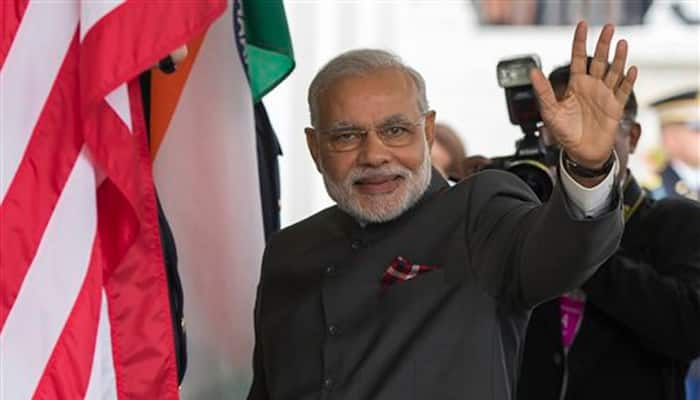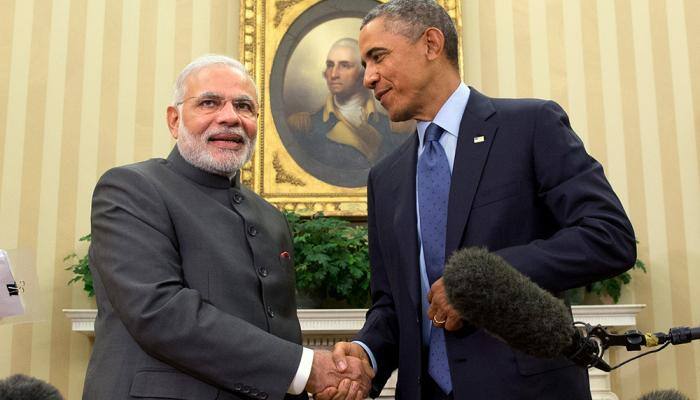New Delhi: After winding up a his five-day maiden visit to the US and describing it "very successful and satisfactory", Prime Minister Narendra Modi on Wednesday evening landed in India.
The 64-year-old Indian leader made a strong impression with his energy and declared commitment to transform India in which he sought US cooperation and investments, including in railways and defence manufacturing.
PM @narendramodi back on home soil after successful visit to USA. pic.twitter.com/Tr2QZP4SKp
— Syed Akbaruddin (@MEAIndia) October 1, 2014
Urging top US corporates to establish and expand their base in India before "it is too late", Modi told the US-India Business Council (USIBC) before emplaning for Delhi last night that he would implement in the next 6 months all the things necessary for ease of business in India.
USIBC told him that it had identified upwards of USD 41 billion slated for investment by its members in India within the next 3 years.
However, American media was of the view that thorny issues such as Indian taxation laws, trade and civilian nuclear energy cooperation, that had divided the two countries in the recent years, remained to be resolved.
There were promises on issues such as the decision to establish an inter-agency contact group to sort out outstanding liability and technical issues to fast-track implementation of the landmark 2005 civil nuclear deal signed by Modi's predecessor Manmohan Singh.
The deal has remained stalled over the liability of those who supply nuclear reactors with Americans complaining that it was heavily weighed against them.
Gains of the visit include renewal of the 10-year defence cooperation framework, agreement to cooperate on maritime security and several other initiatives like high technology, space and health cooperation.
Dawood Ibrahim, the mastermind of the 1993 Mumbai blasts, and his financial network will now for the first time be the target of India and the United States following their agreement to dismantle safe havens for terrorists and criminal networks, including those of the D-company.
Prime Minister Narendra Modi and President Barack Obama have committed themselves to joint and concerted efforts to disrupt all financial and tactical support to Al Qaida, Lashkar-e-Toiba, Jaish-e-Mohammad, the Haqqani network and the D-company, a reference to the network of Dawood believed to be living in Pakistan under official patronage.
The two leaders discussed terrorism in South Asia and emerging threats in West Asia but India has made it clear that it will not join "any coalition" in the ongoing fight against the dreaded ISIS group.
India, however, agreed to work with the US to deal with the "major issue" flight of radicalised people to that region for terror strikes.
As a critical step in strengthening global nonproliferation and export control regimes, the two leaders pledged to continue work towards India's phased entry into the Nuclear Suppliers Group (NSG), the Missile Technology Control Regime (MTCR), the Wassenaar Arrangement and the Australia Group.
The President affirmed that India meets MTCR requirements and is ready for membership in the NSG. He supported India's early application and eventual membership in all four regimes.
US human rights groups pressed Obama to raise the issue of alleged human rights violations in India. There was no mention in the joint statement White House Press Secretary Josh Earnest told reporters that "Human rights and the importance of inclusive governance were part of the discussions between the President and the Prime Minister today".
(With PTI inputs)


















